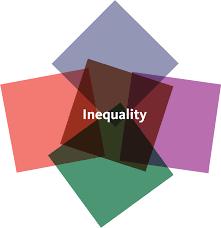Inequality Culture in Africa
Mar 30, 2023
This research paper discusses the influence of inequality culture in Africa. Inequality culture exists when inequality is integrated into social norms and values, resulting in unequal access to resources and opportunities. This paper examines the different dimensions of this issue, including the economic, political, cultural and social aspects of inequality experienced in African countries. It aims to identify any underlying factors that contribute to the prevalence of inequality in Africa.
Economic inequality is one of the most visible aspects of the inequality culture in Africa. Despite the continent's rich natural resources, poverty and inequality remain pervasive in many African countries. This has led to an unequal distribution of wealth, a small minority having access to vast amounts of wealth while the majority lives in poverty. The lack of adequate investment into public infrastructure and services further contributes to this problem by limiting opportunities for economic growth and development.

Political structures also play an important role in contributing to inequality culture in Africa. Political systems are often characterized by weak institutions and corrupt leaders who are able to manipulate policies and laws for their own benefit. This creates an environment where individuals or groups can use their political power to gain privileged access to resources, resulting in social and economic inequalities.
Cultural beliefs and practices can also have an influence on the prevalence of inequality culture in Africa. Traditional values around gender roles, for example, may contribute to women having limited access to education or employment opportunities. In addition, many African cultures favor one ethnic group over another, leading to unequal levels of representation and participation in political decision-making processes.
Finally, social attitudes towards inequality can be a factor that contributes to inequality culture in Africa. There is often a lack of awareness or understanding about the real causes of inequality which leads people to accept it as a normal part of life. This social acceptance creates a culture where disparities are perpetuated rather than challenged or addressed.
